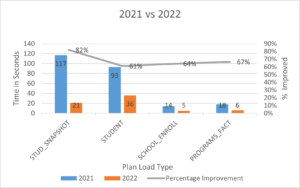Are you one among the “nobody like me”?
One of the key things we hear from students on our journey to support personalizing education, is a phenomena that we at eScholar have come to call “nobody like me”. It reveals itself time and time again as, “nobody like me goes to college”, “nobody like me is an engineer” or “nobody like me becomes a doctor”.

Aside from the obvious self-defeating nature of this perception, those of us that get to look at the data through personalized education know that it’s simply not true. I can assure you, regardless of how you define yourself; ethnicity, income, neighborhood or country of origin, people just like you have accomplished amazing things.
The problem is that you likely don’t know what others did when they were standing exactly where you are standing today. There are many successful people in the United States that defeated the odds and didn’t allow the lack of resources or self-limiting belief stunt their success.
- Howard Shultz, the CEO of Starbucks grew up in a housing complex for very low-income families. “Growing up I always felt like I was living on the other side of the tracks. I knew the people on the other side had more resources, more money, and happier families. And for some reason, I don’t know why or how, I wanted to climb over that fence and achieve something beyond what people were saying was possible. I may have a suit and tie on now but I know where I’m from and I know what it’s like.”
- Forever 21 founder, Do Won Chang worked as a janitor, gas station attendant, and in a coffee shop to make ends meet after moving to America in 1981. Forever 21 is now an international, 480-store empire that rakes in around $3 billion in sales a year.
- A household name, Oprah Winfrey was raised being bullied for having to wear a potato-sack dresses because ‘nice’ clothing wasn’t a necessity to her poverty-stricken family. Oprah was shuffled between family members and had limited access to education when living in rural Mississippi. But upon moving to Tennessee and attending high school and Tennessee State University, she realized that media was her driving force. Oprah went on to become the first African American female news anchor.
- I may not have achieved the highly visible success of the folks above, but I started out living in a trailer on a tobacco farm in eastern Kentucky. I often felt that nobody like me did anything big. My parents didn’t finish college, tobacco farming was dying, things didn’t look good. A big turning point for me was when one of my nerdy buddies got accepted to Massachusetts Institute of Technology. That told me that someone like me could do exciting things and I decided I was going to be one of those people.
Believe in yourself.
Though these stories might seem far from home, know that they aren’t. Every single story is important and a story like this could be yours! One of the things we are trying to do at eScholar is to give a diverse set of individuals an opportunity to tell their story, let them explain that they came from “like” circumstances, and have them discuss the factors that led them to be doing things they love now. By providing more personalized education, we believe that more success stories will sprout in more places than ever.
We want to give students a variety of examples that they learn from and relate to within their own circumstance. We know from our work that personalizing education can guide students toward great achievements and can help them achieve their own version of success. Using tools such as myTrack, students, teachers, principals and even parents will play a pivotal role in assisting and launching students from all different situations toward the same goal: success.
We also know that is still not enough. Each of us needs to know more than just what to do… we need to believe that “someone like me” can and will achieve their dreams.



